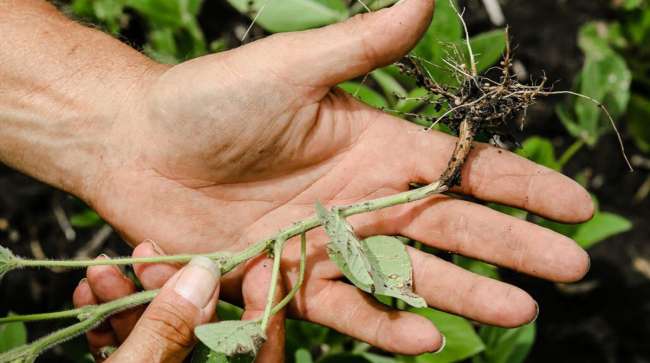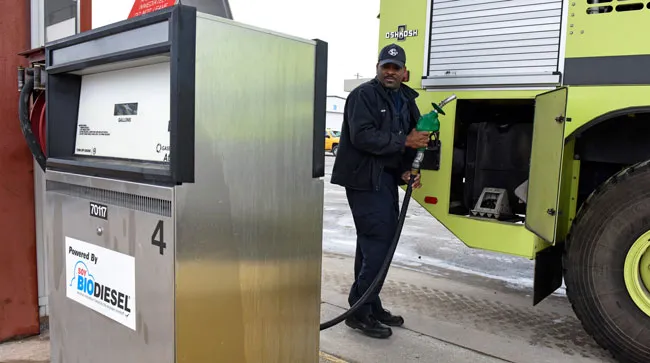Staff Reporter
Missouri Awarding Grants to Lift Biodiesel, Ethanol Output

[Stay on top of transportation news: Get TTNews in your inbox.]
Missouri is accepting grant applications for its biofuel infrastructure incentive program to encourage more green fuel distribution and use of ethanol and biodiesel blends.
“An investment in biofuel is an investment in Missouri agriculture due to the increased demand for soybeans and corn, two of Missouri’s top commodities,” noted Jill Wood, executive director of the Missouri Agricultural and Small Business Development Authority.
The Biofuel Infrastructure Incentive Program, administered by MASBDA, will award grants to biofuel retailers, distributors, terminal companies or fleet operations. Eligible recipients must currently dispense or have plans to store or dispense ethanol blends of at least E15 and biodiesel blends of B6 or higher.
“MASBDA is proud to play a part in growing biofuel availability in Missouri,” Wood stated. Applications are due by Oct. 15. Award notifications will be made no later than Nov. 29.
The grants will be split evenly between biodiesel and ethanol projects. For both types, up to 75% of the funds will go to Tier 1 projects and no more than 25% to Tier 2 ventures.
Jeff Loftus of FMCSA joins TT’s Seth Clevenger to discuss the current outlook on ADAS technology and how it will affect the industry at large. Tune in above or by going to RoadSigns.ttnews.com.
For Tier 1 applicants, which include any terminal company, fuel distributor or fuel retailer with more than five locations, the maximum grant can cover 50% of eligible project costs or $500,000, whichever is less.
Tier 2 applicants, consisting of fuel retailers with no more than five stations, fleet operators or individual companies, can be awarded a maximum grant to pay for 75% of eligible project costs or $250,000, whichever is less.
Applicants must be businesses constructing new, retrofitting or improving existing infrastructure or equipment that handles biodiesel fuel, biodiesel blend fuel or ethanol blended gasoline in Missouri. Projects involving multiple locations within the state will also be considered.
RELATED: Biodiesel Fuel Gets Latest Push in Missouri
“This biofuel grant program is a prime example of a successful public-private partnership,” said Matt Lambert, chairman of the Missouri Corn Merchandising Council. “We appreciate the continued collaboration with elected officials and MASBDA to help set the stage for additional options at the pump, cleaner air, and increased energy security with homegrown renewable fuels.”

A man fills a tractor's fuel tank from a soy biodiesel pump at the St. Louis Lambert International Airport. (Mill Creek Communications via Missouri Soybeans)
Grants may be awarded to pay for various infrastructure improvements related to biofuel distribution. These include the construction, installation, upgrade or retrofit of fuel dispensers and pumps, related or attached equipment, underground or aboveground storage tanks, and tank system components. Funding can also support other infrastructure located in Missouri that will ensure the environmentally safe availability of ethanol or biodiesel blends.
Aaron Porter, former chairman of the state Soybean Merchandising Council, noted, “This program is an important step in our efforts to build new demand and access for biodiesel and growth for our economy here in the state.”
According to Missouri Soybean Association figures from April 2023, the state’s biodiesel infrastructure consisted of seven biodiesel plants, 19 distributors, 134 biodiesel retailers of blends ranging from B6 to B20 and 511 biodiesel retailers offering blends of B5 and under.
Missouri’s biggest crop, corn, usually is grown in two-year rotations with soybeans. Missouri’s soybean production — valued annually at $2 billion — ranks seventh in the nation and its corn yield (worth $1.8 billion yearly) is 10th highest, the state agriculture department noted.
Want more news? Listen to today's daily briefing below or go here for more info:





